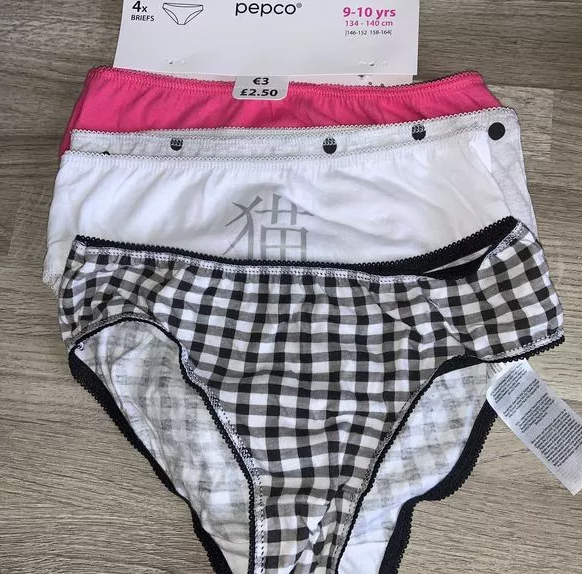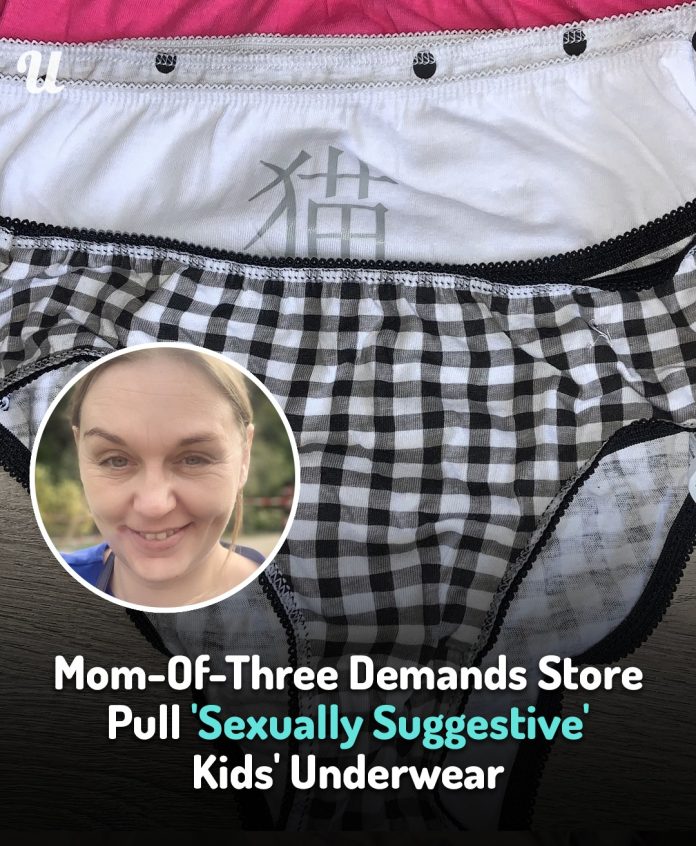In early 2025, a British mother, Nicola Pritchard from Cannock, Staffordshire, raised concerns over a set of children’s underwear purchased from Poundland’s Pepco range. Priced at £2.50, the four-pack featured a Japanese symbol that, upon translation, was found to mean “pussycat”—a term that can carry inappropriate connotations in English.
Pritchard discovered the meaning after her 10-year-old daughter inquired about the symbol. Using Google Translate and Google Lens, she identified the term’s translation and was “absolutely gobsmacked” by its implication. She emphasized that while the symbol might be appropriate in a different context, its placement on children’s underwear was unsuitable.

The underwear was part of a Japanese-themed cat range, which included other items like socks and vests. However, Pritchard noted that the specific pair in question lacked any cat imagery, making the inclusion of the symbol perplexing. She expressed her concern, stating, “It’s got no place on children’s knickers. I think there are sexual connotations to it. It’s not even the proper name for cat; it’s the slang name.”
Upon realizing the issue, Pritchard contacted Poundland to voice her concerns. The retailer acknowledged the complaint, apologized, and initiated an investigation. A spokesperson stated, “While these are part of a wider Japanese-themed cat range… we understand why Nicola questioned one item out of the context of the whole range.”
Despite the apology, Pritchard was dismayed to find the product still available in stores days later. She remarked, “It seemed like they weren’t taking this seriously at all. I went into the store days after complaining, and they were still selling them.”
The incident sparked discussions on social media, with many supporting Pritchard’s stance. One user commented, “That’s absolutely disgusting,” while another added, “I’d take that further; that’s awful.”

This event underscores the importance of thorough product vetting, especially when incorporating foreign symbols or languages. Retailers must ensure that product designs are appropriate for their target audience to prevent misunderstandings or offense.
Pritchard hopes that by bringing attention to this issue, retailers will exercise greater caution in the future. She concluded, “They should be recalled. I truly believe that Poundland didn’t know, and there was a problem in manufacturing, but it has been missed somewhere along the line.”

















